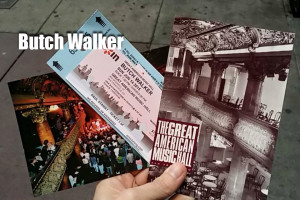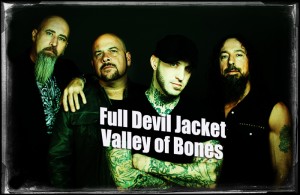2009: Or How I Learned to Stop Worrying and Love the List
7 min readYear-end lists are an invitation for debate. Visit any website with a Top 10 film list, scroll down and read the comments section and enjoy some good ol’ fashioned bitchin’. All lists, by necessity, are incomplete. We’re not developing a cinematic canon here. We’re subjectively, imperfectly, reluctantly naming those films that worked best for us on artistic and personal grounds. Your list could be equally as valid as the one I have compiled (as long as it does not include Transformers 2), because cinema is riddled with multiple subjectivities, as it must be.
Before I proceed to my list let me explain something. This list will inevitably exclude some films that should likely be included. I have not seen several of the most talked about movies of 2009 yet (i.e., Thirst, Up In The Air, The Headless Woman, etc). If it’s any consolation, I can promise that nothing else I could have possibly seen this year would supplant my favorite film of the year, which is so far ahead of the competition in my mind that it’s the only film that I’ve assigned a numeric rank. The rest of the films are simply listed, although perhaps the order in which they came out of my brain reflect some Freudian hierarchy…(?) In the general anarchic spirit in which I like to write, I comment on each film in whatever the hell manner I want, so I hope you enjoy. Feel free to chew my list up and spit it out if you would like.
Best of 2009
1) Inglourious Basterds (Tarantino) – “We’re French; we respect directors in our country,” snaps Shoshanna Dreyfus, the blonde goddess (and heart) of Tarantino’s masterpiece. Yes. It is a masterpiece. Don’t think so yet? Just wait and see how you feel about it in five years. Basterds is not just the best movie of the year; it’s also Tarantino’s best film, which is high praise for a director who hasn’t made a bad (or uninteresting) film yet. His most straightforward work to date, as it turns out, is also his densest. It’s fun, violent, insane, gutsy, and…well…a Bazinian rumination on the transcendent nature of cinema. The acting and writing dance together perfectly at every moment, traipsing on the fine line between out-n-out parody and deadly drama, a feat Tarantino is no stranger to. This time around, however, he delves deeper than the surface (after all, Tarantino, like the Coen brothers, has already completely mastered the superficiality of film); he plunges headlong into the ability of cinema to revision history, the use of constructed identity to perpetuate our own myth, and the ontology of the filmic image. Inglourious Basterds is a rollicking good time, filled with instant-classic performances and a final act so recklessly awesome, so exquisitely constructed, so drunk on cinematic philosophy, that after several viewings you’ve only begun to take it in. Make no mistake, this is a film that will only grow in stature over the years, I absolutely promise you. I can’t sing the praises of this masterpiece enough.
The Hurt Locker (Bigelow) – It’s on virtually every list for a reason. The Hurt Locker is a political war film that gets away with it because it is primarily about suspense and character. It presents the viewer with a great central metaphor for the War on Terror: the bomb that could be anywhere. Is it under that bag? Buried under the ground? Strapped around that old man? Inside the trunk of the car? Who the hell knows? Katherine Bigelow has crafted a lean, suspenseful war film that is as psychologically mysterious as the war it portrays.
Avatar (Cameron) – I’m getting tired of hearing complaints about a lack of subtlety in Avatar’s “messages.” Cameron’s story is good enough, his dialogue is good enough, and after all, who doesn’t like a little dose of Colonial guilt? It’s not necessarily a bad thing. But holy shit how about those visuals? Like Inglourious Basterds, if I really wanted to, I could spend 4,000 words on this flick, just poring over the gush of imagination on the screen and the effects that so convincingly put it there. Suffice it to say that there are some movies that instigate in a child the love of the cinema, that make a kid say when they’re older, “That movie made me fall in love with movies.” I can absolutely see Avatar being that movie for a lot of kids.
Goodbye Solo (Bahrani) – A lot of critics have their eyes on Ramin Bahrani. The director responsible for Chop Shop (2007) and Man Push Cart (2005) is a major cog in what New York Times critic A.O. Scott has called American Neo-Neo Realism. Goodbye Solo is closely observed and naturalistic, allowing its characters to breathe and change, or not change for that matter. In theme, execution, spirit, and content, Bahrani is a director who is definitely of-the-moment; his films evoke the changing demographics of America as well as its unique juxtaposition of promise and struggle. Roger Ebert has called Bahrani the “new great American director,” and this reviewer won’t argue with that.
Antichrist (Trier) – Do I want to watch this movie 10 times? I don’t think so. Was it a fun viewing? Hell no. Does a film have to be enjoyable to succeed artistically? Absolutely not. The truth is, Lars von Trier has made yet another movie that may, or may not, make any sense whatsoever. Antichrist works for me as a moving Munchian Scream; less about “what it’s about” than what it evokes.
Drag Me to Hell (Raimi) – I guess it’s the populist in me that just had to put this on the list. After several years of American horror films lacking in originality or were otherwise sado-sexual exercises masquerading as social satire, Sam Raimi returned to his roots with a balls-out, scary-fun, straightforward, icky piece of comedy-horror. Watching Raimi play with genre conventions while simultaneously indulging in them was one of my cinematic joys this year.
Fantastic Mr. Fox (Anderson) – I’m a Wes Anderson fan. I dig his style; the unholy trifecta of New Hollywood (think Harold and Maude), French New Wave (think more Truffaut than Godard) infused with the detached irony of the current age. If you think Anderson’s work is often too cute by half (a valid point), then you will absolutely love Mr. Fox because animation marries so perfectly to his style. Anderson successfully mines the same old ground (I don’t say that as a derogation, but as a comfort) of insecure characters that try too hard to appear as though they aren’t trying too hard to be great. Oh, and did I mention how hilarious it is? Let’s just say I’m glad I saw this at a sparsely attended matinee showing, because I was laughing stupid at several points.
Up (Docter) – Pixar is still busy making the rest of Hollywood look bad by continuing what has to be the best studio hitting streak ever, with another cute/beautiful/heartbreaking/joyous/fun/hilarious film in Up. The first 15 minutes are utterly transcendent. The rest of the film is a romp for adults and kids alike. I love the symbolism of a character literally carrying the thing holding them in the past. In my opinion, Wall-E remains the best Pixar film to date, but ordering Pixar films is like rearranging Rolex watches.
Adventureland (Mottola)/ 500 Days of Summer (Webb) – Here are two films about love and relationship with the balls to depict the real thing. This includes complicated sexual history, broken trust, breakups, jealousy, mundanity, and joy. Adventureland is a joyful and haunting film in the same manner as Almost Famous – which was a film not made by human hands, but rather sent directly down from heaven in an act of cinematic theophany. 500 Days of Summer is an insanely energetic and original work chronicling the all-too-familiar trajectory of a passionate, though ill-fated and fizzling, romance. Both of these films are anchored by astonishingly charismatic performances. You just hate to see the credits roll on both of these movies.
Public Enemies (Mann)/ The Road (Hillcoat) – I could go on about both of these movies for some time, so I’ll test my discipline and keep my comments on both very brief. Mann’s Public Enemies is a fascinating film for reasons I’m still having a difficult time understanding. It is elusive in its literal, straightforward approach to its subject. How can something so straightforward feel so mystical? Who the hell knows? I continue to be endlessly fascinated by the digital camerawork Mann has employed since his masterpiece Collateral. The Road captures the spirit of Cormac McCarthy’s novel. What else really needs to be said? Hillcoat admirably keeps this story at a simmer with dread, sadness and the faintest of hope to the very end, instead of bringing it to a quick boil. The acting is ridiculous throughout. I dare you to watch the campfire scene with Mortensen, Smit-McPhee and Robert Duvall, and remain with your heart intact. I couldn’t talk for about five minutes after seeing The Road.
Honorable Mentions
Coraline, Star Trek, Funny People, The Hangover, Bruno, District 9, Where the Wild Things Are, Away We Go, Watchmen, Knowing, I Love You Man, The Cove, You the Living, The Informant







I like your list. I still have yet to see The Road but want to do so. And The Headless Woman is worth seeing; it’s one I’d like to see again, as I feel certain I missed a great deal on my first viewing.